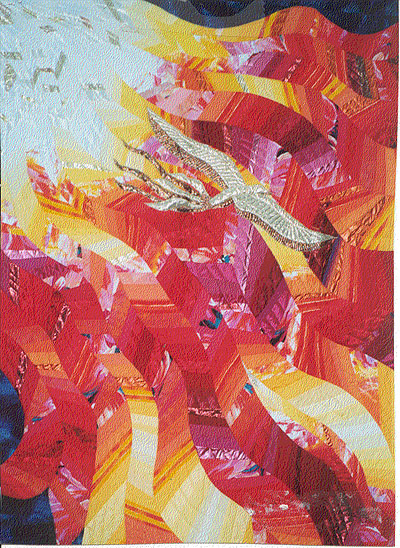Spiritual Sunday
Today we celebrate Pentecost, the moment when the disciples experienced the Holy Spirit and realized that they no longer needed the physical presence of Jesus. Each of them had his own inner conduit to God. The Pentecost spirit is captured in a powerful poem by William Blake:
Here’s how Luke (Acts 2:1-6) describes the moment:
And when the day of Pentecost was fully come, they were all with one accord in one place. And suddenly there came a sound from heaven as of a rushing mighty wind, and it filled all the house where they were sitting. And there appeared unto them cloven tongues like as of fire, and it sat upon each of them. And they were all filled with the Holy Spirit, and began to speak with other languages, as the Spirit gave them utterance. And there were dwelling at Jerusalem Jews, devout men, out of every nation under heaven. Now when this was noised abroad, the multitude came together, and were confounded, because that every man heard them speak in his own language.
I haven’t been able to track down the origin of Blake’s poem, which I’m assuming appears in one of his long mystical poems. Note the strategic use of the word “unless.” Blake is pushing against conventionality and one-dimensional reason, which in Blake’s cosmology is represented by the figure of Urizen and is contrasted with Los, who represents imagination:
Unless the eye catch fire,
The God will not be seen.
Unless the ear catch fire
The God will not be heard.
Unless the tongue catch fire
The God will not be named.
Unless the heart catch fire,
The God will not be loved.
Unless the mind catch fire,
The God will not be known.
About his poetic visions, Blake wrote,
I rest not from my great task! To open the Eternal Worlds, to open the immortal Eyes Of Man inwards into the Worlds of Thought: into Eternity Ever expanding in the Bosom of God, the Human Imagination.
A note on the artist: Linda Schmidt’s quilts may be seen at https://home.comcast.net/~shortattn/landscap.htm
Follow-up note: Although I found the above poem attributed to William Blake in a book of sermons by former Yale pastor William Sloane Coffin, I’m having increasing doubts that it is by the poet. Sewanee Blake scholar Jennifer Michael says she can’t find it in Blake’s collected works. It’s a good poem with Blakean sentiments, but possibly it’s by someone else.
